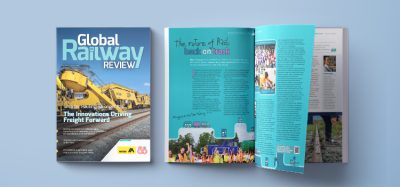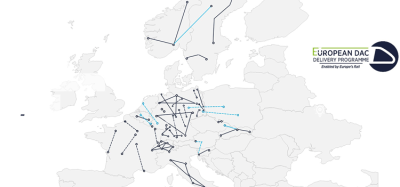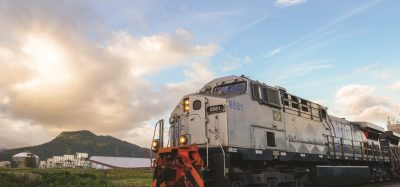Ford & Stanley Director predicts 2024 trends for the rail industry
Posted: 8 January 2024 | Dan Taylor | No comments yet
Ford & Stanley Director, Dan Taylor, has published his predictions for the rail industry for 2024.


Dan Taylor, Director of Ford & Stanley Group, looks at some rail industry predictions for the year 2024.
The digital leap
In 2024 we’ll see digital transformation gain even more prominence across the rail sector. While it is hugely innovative and promises game-changing potential, we’re only just at the cusp of what is possible.
We’re already seeing tech innovations allowing operators to make travel more convenient for customers and to provide an enhanced service to rail users either within the station or on the train itself, including real-time passenger information systems, improved mobile connectivity and station developments. This will only continue to evolve this year and with rail fares going up, it’s no surprise customers expect more.
However, as in practically every other sector, the digital shift and updating of systems increases the risk of cyber-attacks, making security a major issue for train operators with fragmented data, data loss and outdated systems. The need for a large-scale update delivering updated solutions will be crucial to improve the cyber security of the critical infrastructure involved.
The planned transition to decarbonisation will also create a huge opportunity for both candidates and employers across UK rail. The next five years are going to be revolutionary for public transport, as urban mobility continues to undergo a huge transformation and historical step forward towards sustainability, leading to a fundamental transformation of business activities (planning, operation, and maintenance) in terms of delivery of increased asset availability and cost-effectiveness.
The past year has proved that if rail recruiters are prepared to innovate, the opportunity is there for the taking over the next 12 months and so this must continue to be the mindset, to help them navigate this evolving landscape with confidence and precision.
Workplace wellbeing and purpose
As more employees and candidates seek personal value and purpose at work, what is evident is that the rail sector must be prepared to deliver in 2024. Talent will be drawn in with promises of generous leave, flexibility, and mental health benefits.
One recent study focused on 2023 market trends found that the three most important factors for UK candidates were compensation (74%), hybrid working (68%) and personal development and career progression (66%). According to another, 51% of workers believe their work wellbeing is more important than a salary increase.
There is now more importance placed on mental health and wellbeing, something which more companies across the sector have been embracing over the past 12 months. It’s encouraging to see that steps are already being taken in the industry, as seen with Rail Wellbeing Live.
Therein lies a golden opportunity for rail businesses to further invest in staff performance, personal development and wellbeing, especially if they are looking to increase staff retention and attract talent. Statistics also show that businesses that look after their staff can help prevent stress and create positive working environments where individuals can thrive – which in turn leads to strong business outcomes.
Aligning talent and business goals
Investing in the right talent is one thing; however, aligning people strategy with the overall business is a crucial element for commercial growth and success. So, what will be key for more rail organisations moving forward is to devise and adopt a balanced, more holistic approach to managing talent, from developing individuals so they reach their full potential to integrating talent within the overall business strategy. We have seen a growing trend in firms having a learning and development framework in place which is connected to specific business goals; this has helped them identify learning outcomes to ensure their employees have the necessary skills to drive the overall success of the organisation. With digital innovation poised to ignite the rail sector over the next few years, how businesses harness the right talent will be pivotal.
More Like This








